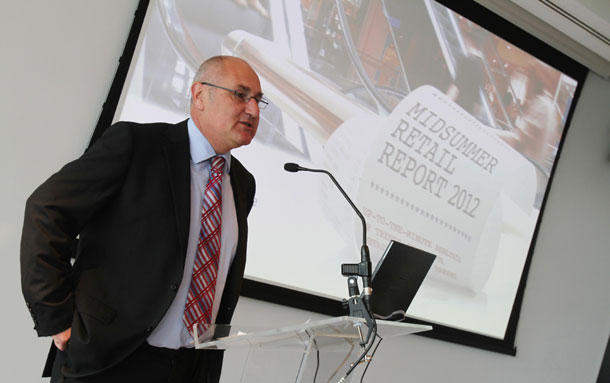 Avonmouth’s long awaited Deep Sea Container Terminal should be pushed to the front of the pack of strategic transport initiatives in the South West.
Avonmouth’s long awaited Deep Sea Container Terminal should be pushed to the front of the pack of strategic transport initiatives in the South West.
That’s according to Tim Davies, head of commercial property specialists Colliers International’s Bristol office.
His comments follow publication of the latest Colliers International report on Global Linkages, which forecasts the continued growth in container shipping passing through Europe’s ports is set to outstrip overall economic growth for the foreseeable future.
Tim said the proliferation of major transport schemes in the area including the Great Western mainline electrification, the Greater Bristol Metro scheme, the Bus Rapid Transit schemes and Bristol Airport expansion were jostling for prominence with little or no consideration given to the potential impact on competing schemes.
He said the £600m scheme at Avonmouth would have the greatest long term significance as it could play a pivotal role in future freight transport requirements.
“There are limits to the levels of freight which can be brought into the UK by rail and we are already seeing many airports straining to cope with their present capacity, let alone the freight projections for the new few decades.
“In reality the only realistic solution is to ensure our ports are geared up to cope with the lion’s share of freight arriving in the UK.”
Southampton, Felixstowe and London Gateway are currently the top container ports in the country but Tim Davies believes the Deep Sea Container Terminal proposed at Avonmouth has greater potential in the longer term because of its superior transport links and the greater availability of warehousing and logistics infrastructure.
He said: “Once the new terminal is built, Avonmouth has the potential to become one of the largest and busiest ports in Europe and would enable Bristol to welcome some of the world’s biggest container ships.
“The terminal is closer to more inland container destinations than any other deep water dock which will mean savings for the rail and road networks.
“Avonmouth enjoys direct rail and motorway access from the port which means warehouse and distribution sites will be at a premium.”
The Deep Sea Container Terminal port scheme has been approved by the Secretary of State but work has not progressed past the initial testing stage as the Port of Bristol waits for global economic conditions to improve. Once construction starts the terminal will be ready in about three years.
Once completed the new terminal will increase capacity at the docks from 3,000 containers a year to more than 15,000. With 18 metres of water the terminal will be able to accommodate the new breed of superheavy container ships, some of which are larger than US aircraft carriers.
Tim Davies said it was vital Bristol took advantage of fast developing global transportation trends.
“In tough economic times distribution is important as governments and industry alike seek to improve logistics and efficiency.
“All this is directly linked to spare industrial capacity in Avonmouth and could really set Bristol alight.
“With so many large scale transport initiatives under consideration there is a risk some may overlap or even compromise other schemes.
“We are determined to ensure all stakeholders are made aware of the long term significance of the Deep Sea Container Terminal and its pivotal role at the centre of the freight distribution network, not just in the South West but nationally.”






















